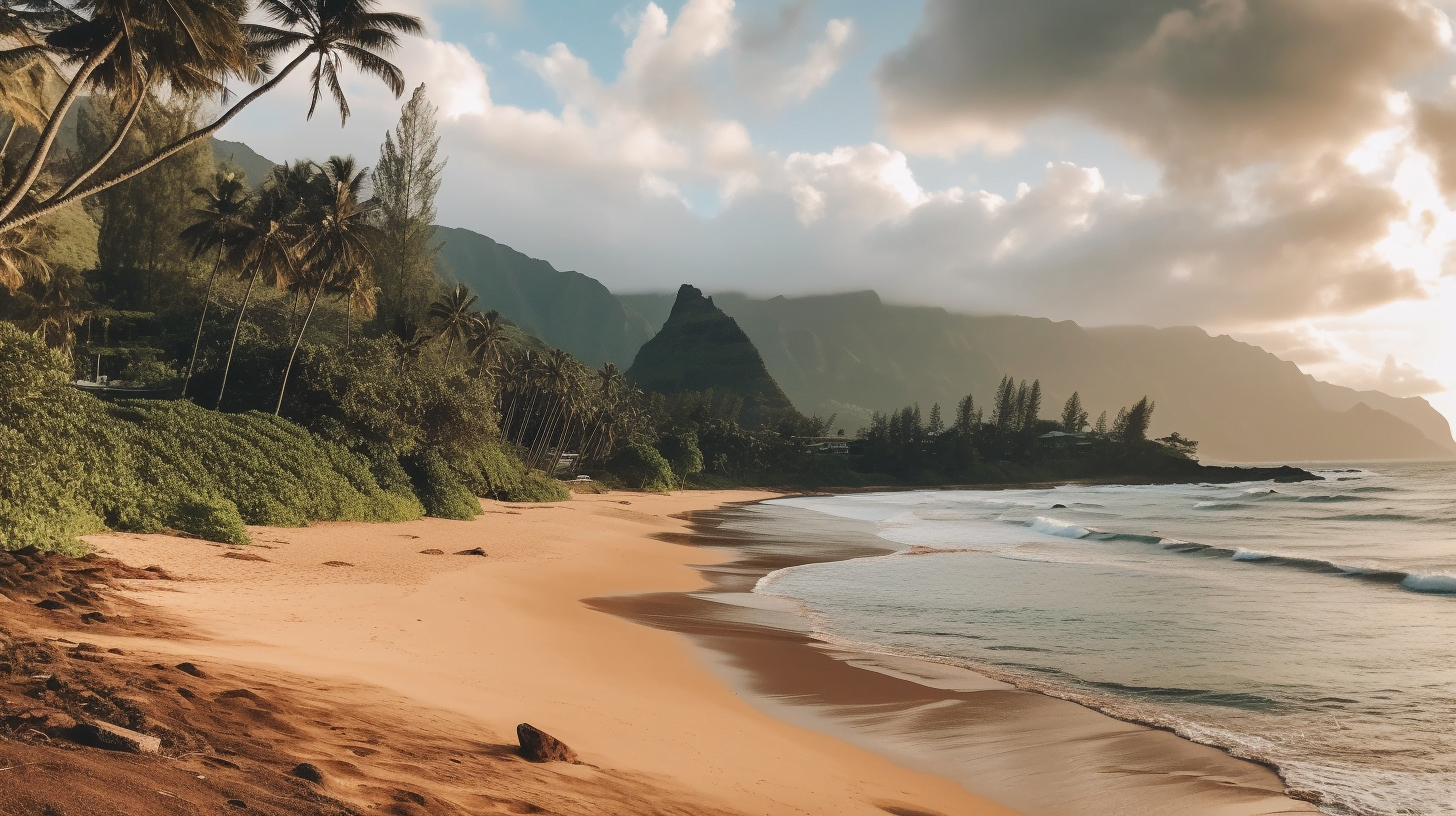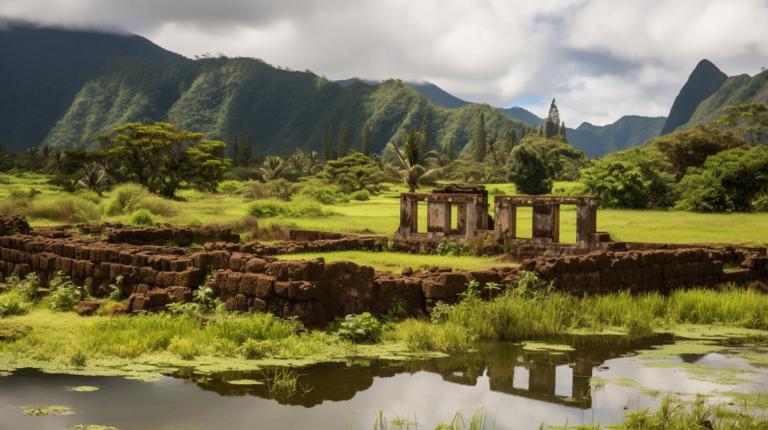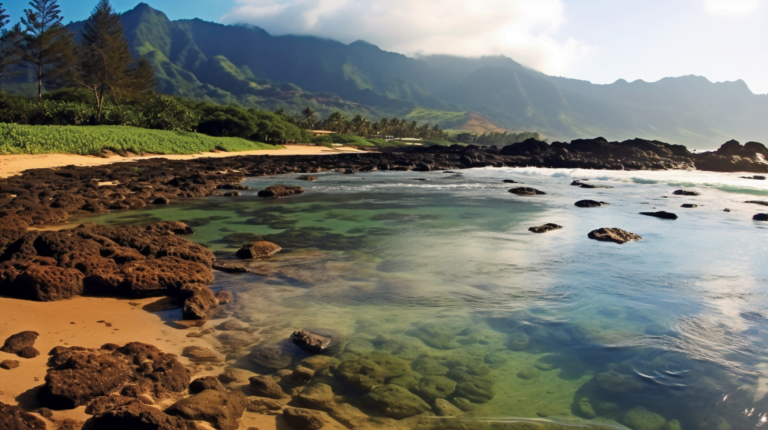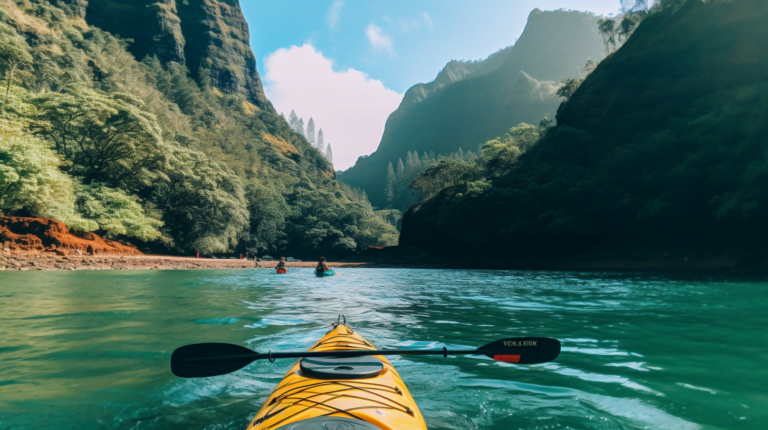“Navigate Kauai: Essential Laws and Guidelines for a Safe Visit 🌴”
Kauai, the fourth largest island in Hawaii, enthralls tourists worldwide. However, the adherence to local laws and regulations is essential for everyone’s safety and the island’s well-being. With an economy reliant on tourism, Kauai expects visitors to respect its rules, including prohibitions on activities like public smoking and littering.
Non-compliance can lead to fines, legal actions, or even deportation for non-US citizens. Respect for Hawaiian culture and traditions, including sacred sites and local customs, is crucial. Environmental conservation is also of paramount importance, given Kauai’s unique biodiversity. Visitors must refrain from littering, keep to marked trails, and avoid disturbing wildlife and marine ecosystems.
Hawaii Restrictions and Travel Advisories
Hawaii is a popular travel destination, known for its beautiful beaches, lush greenery, and warm weather. However, the COVID-19 pandemic has impacted Hawaii just like it has impacted the rest of the world. The Hawaii Department of Health requires all travelers to take a COVID-19 test before arriving in the Hawaiian Islands. International travelers must also follow the United States’ travel restrictions and advisories.
Travel Restrictions & Requirements in Hawaii
To enter Hawaii as a traveler, you must have taken a COVID-19 test from one of Hawaii’s trusted testing partners within 72 hours of your departure time. You must show proof of your negative test result upon arrival in Hawaii or quarantine for 10 days upon arrival. If you do not have proof of your negative test result, you will be required to quarantine for 10 days or until you receive your negative test result while in Hawaii.
How Has Coronavirus Impacted Hawaii?
The coronavirus has had a significant impact on Hawaii’s economy and tourism industry. Many businesses have closed due to decreased tourism and increased restrictions on gatherings and restaurants. Oahu, Big Island, and other areas have implemented restrictions on restaurants and gatherings due to the risk of COVID-19.
In addition to economic impacts, hospitals in Hawaii have seen an increase in hospitalizations due to COVID-19. This has prompted updates to travel tests and advisories to help prevent further spread of the virus.
Visiting Hawaii Now
While many tourists are eager to visit Hawaii again after months of lockdowns and quarantines, some locals are concerned about visitors bringing more cases of COVID-19 with them. Recent travelers report that they felt safe during their trips but noticed fewer crowds than usual at popular tourist destinations.
Hawaii’s Travel Requirements for Indoor Businesses
Indoor Mask Mandate: A Must for Businesses in Hawaii
Indoor mask mandates have been implemented in several states across the United States, including Hawaii. The mandate requires all individuals to wear masks indoors, regardless of their vaccination status. This mandate applies to all indoor spaces, including restaurants, bars, retail stores, and gyms. Businesses are required to enforce this mandate for both their customers and employees.
Enforcing the Indoor Mask Mandate
Businesses in Hawaii must ensure that they adhere to the indoor mask mandate. This means that they must require all employees and customers to wear masks while inside their establishments. Failure to comply with this mandate may result in fines or closure of the business. Therefore, it is crucial for businesses to take this mandate seriously and enforce it strictly.
Visitors’ Responsibility
While visiting Hawaii, tourists should be prepared to wear masks indoors at all times. It is essential that visitors understand the importance of following these regulations as a way of protecting themselves and others from COVID-19. Visitors who do not comply with the indoor mask mandate may face penalties or fines.
The Importance of Adhering to Regulations
It is important for everyone in Hawaii to follow these regulations carefully as they play a significant role in preventing the spread of COVID-19. By wearing masks indoors, we can protect ourselves and others from getting infected by respiratory droplets that are released when we talk or breathe.
Reservation Required for Beachgoers and Napali Coast Hikers
To manage the island’s capacity, reservations are required for beachgoers and Napali Coast hikers. This system ensures that the island does not become overcrowded, which can be detrimental to both tourists and residents alike. Both residents and non-residents can make reservations online up to 14 days in advance of their desired date of entry.
Visitors from the mainland must undergo a pre-travel screening process and obtain a negative COVID-19 test result before departure to HNL airport. This requirement is in line with Hawaii’s statewide travel restrictions, which aim to prevent the spread of COVID-19 on the islands. It is important to note that all visitors must follow these guidelines, regardless of whether they are making a reservation for beach access or hiking on the Napali Coast.
Beachgoers and hikers must wear face masks in line with Kauai’s requirements. Masks should be worn at all times while in public spaces, including when entering and exiting beaches or hiking trails. This measure is essential to ensure that everyone on the island remains safe during their visit.
During summer months (May to September), visitors are encouraged to park at designated lots to avoid congestion and traffic. These lots are strategically located near popular beaches, hiking trails, and other attractions so that visitors can easily access them without having to drive around too much.
Napali Coast hikers must have a permit and follow specific regulations, including staying on designated trails and camping only in designated areas. These regulations help protect this beautiful area’s natural beauty while ensuring visitors’ safety during their hike.
Managing Access to Haena State Park: The New System
New Rules for Managing Access to Haena State Park
Online Reservations and Tests
Haena State Park has recently implemented new rules for managing access to the park. Visitors are now required to make reservations online and in advance, which is a significant change from the previous system where visitors could enter the park on a first-come, first-served basis. This new rule aims to limit the number of people entering the park each day, ensuring that there are no overcrowding issues.
Before making a reservation, visitors must take an online test about the park’s rules and regulations. The test covers topics such as respecting cultural sites, staying on designated trails, and packing out all trash. This requirement ensures that visitors are aware of their responsibilities when visiting the park and helps protect its fragile ecosystem.
Park Hours and Staff
Haena State Park is only open during certain hours of the day, with specific time slots for visitors to arrive within. Visitors who fail to arrive within their designated time slot risk losing their reservation. This rule ensures that there is no overcrowding at any given time and allows staff members to manage visitor flow effectively.
The new system also requires additional staff members to be present at the park entrance to check reservations and provide information about the park’s rules and regulations. This measure helps ensure that all visitors are aware of their responsibilities when visiting Haena State Park.
Governor Ige’s Praise
Governor David Ige has praised this new system for managing access to Haena State Park. He believes that this approach will help protect Hawaii’s natural resources while providing a better experience for both locals and tourists alike.
School Accounts
In addition to individual visitor accounts, school groups can now create accounts as well. These accounts allow teachers or group leaders to make reservations for field trips or educational visits.
Public Level Test Questions
The public level test questions are straightforward but essential in promoting responsible tourism practices among visitors. The questions cover topics such as respecting cultural sites, staying on designated trails, and packing out all trash. These questions help ensure that visitors are aware of their responsibilities when visiting the park and helps protect its fragile ecosystem.
Advanced Parking Permit Required for Haena State Park Access: All You Need to Know
Haena State Park is one of the most popular tourist destinations in Kauai. With its beautiful beaches, lush greenery, and stunning views, it’s no wonder why visitors flock to this area every year. However, accessing the park can be challenging due to limited parking spots. To address this issue, the Hawaii Department of Land and Natural Resources has implemented a new rule that requires an advanced parking permit for access.
All Vehicles Need a Permit
The advanced parking permit is required for all vehicles entering Haena State Park, including rental cars and tour buses. Without the permit, visitors will not be allowed to park at the park’s lot. The permit costs $5 per vehicle and is valid for one day only.
Purchase Online Up to 14 Days in Advance
To secure a parking spot at Haena State Park, visitors must purchase an advanced parking permit online up to 14 days in advance of their visit date. It’s recommended that visitors purchase their permits early since there are only a limited number of permits available each day.
Limited Number of Permits Available Each Day
The daily limit on permits helps prevent overcrowding at Haena State Park and ensures that everyone who visits has a pleasant experience. Visitors should note that once all permits have been sold for the day, no further entry will be permitted.
Visitors Must Plan Ahead
Since the implementation of this new rule, visitors must plan ahead before visiting Haena State Park. By purchasing an advanced parking permit online before their visit date, they can avoid disappointment and ensure they have access to this beautiful destination.
Quarantine Rules in Hawaii
Strict Quarantine Rules in Hawaii: What You Need to Know
Rules and Regulations
Hawaii is one of the most popular tourist destinations in the world, known for its beautiful beaches, lush greenery, and rich culture. However, with the ongoing COVID-19 pandemic, Hawaii has implemented strict quarantine rules for tourists coming from outside the state to ensure public safety. These rules are in place to prevent the spread of the virus and protect both residents and visitors alike.
QR Code System
Before arriving in Hawaii, all tourists must fill out a travel and health form online. This form includes personal information such as name, address, phone number, and email address. Tourists must provide details about their travel plans and answer questions related to their health status.
Once this form is submitted, tourists will receive a QR code via email that they must present upon arrival in Hawaii. This QR code serves as proof that they have completed the necessary forms before traveling to Hawaii.
Negative COVID-19 Test Result
In addition to filling out the travel and health form online, all tourists must also provide proof of a negative COVID-19 test result taken within 72 hours prior to departure for Hawaii. Without this negative test result or if it exceeds 72 hours from collection time at testing site until departure time of final leg flight into Hawai’i airport/quarantine station on any island (including transpacific flights), travelers will be subject to quarantine.
This negative test result must be presented along with the QR code upon arrival at the airport in Hawaii. If a tourist fails to provide either of these documents or if they do not meet the requirements set forth by Hawaii’s Department of Health (DOH), they will be required to undergo quarantine for 10 days or until they receive a negative COVID-19 test result while in Hawaii.
Penalties for Non-compliance
It is important for tourists visiting Hawaii to comply with these strict quarantine rules; failure to do so can result in significant penalties. Tourists who do not follow these rules may face fines of up to $5,000 and imprisonment for up to one year.
Airlines Health Policies and Activity/Tour Policies in Hawaii
Wearing masks has become a common practice worldwide, and airlines have also implemented this measure to ensure the safety of passengers on flights. Airlines require passengers to wear masks throughout the flight to prevent the spread of COVID-19. This is a crucial step in ensuring that everyone onboard remains safe during the flight. Passengers who refuse to wear masks may be denied boarding or face other consequences.
Before boarding the plane, passengers are required to complete a health questionnaire. The questionnaire aims to identify if any passenger has been exposed to COVID-19 or has any symptoms related to it. If a passenger answers “yes” to any of the questions, they may not be allowed onboard or will be asked for additional screening before being cleared for travel.
Airlines have increased cleaning and disinfecting procedures for planes. This includes regularly sanitizing high-touch areas such as armrests, tray tables, and overhead bins. Airlines are also using advanced air filtration systems that help remove bacteria and viruses from the air inside the cabin.
Tour companies have also implemented social distancing measures for activities and tours. This means reducing group sizes or implementing staggered start times to avoid overcrowding at popular tourist destinations. Tour companies have also increased their cleaning protocols for equipment used during activities such as snorkeling gear or kayaks.
COVID Safety Tips for Visitors and Kama’aina Travelers
Domestic travelers must take a pre-travel COVID test and receive a negative result before arriving in Kauai.
To ensure safe travels, the Kauai government requires all domestic travelers to take a pre-travel COVID test and receive a negative result before arriving on the island. This is to prevent the spread of COVID-19, especially since many cases are asymptomatic. The test must be taken within 72 hours of travel, and only negative results will be accepted.
It’s important for visitors to plan ahead and schedule their tests accordingly to avoid any delays or issues upon arrival. It’s crucial for visitors to follow all safety protocols while on the island, including wearing masks in public places and practicing social distancing. By doing so, we can work together to keep our community safe.
Visitors should wear masks in public places and practice social distancing to prevent the spread of COVID.
While on the island, visitors should continue to wear masks in public places and practice social distancing as recommended by health officials. This includes maintaining at least six feet of distance from others who are not part of your household or traveling group. By following these guidelines, we can help prevent the spread of COVID-19 and protect ourselves and those around us.
Kama’aina travelers who have received the vaccine are still advised to follow safety protocols such as wearing masks and practicing social distancing.
Even if you’ve received the vaccine, it’s important to continue following safety protocols such as wearing masks in public places and practicing social distancing. While vaccines provide protection against severe illness or hospitalization from COVID-19, they do not completely eliminate the risk of transmission or infection. It’s important for everyone to do their part in preventing the spread of this virus.
The CDC recommends that all travelers get vaccinated before traveling to Kauai.
The Centers for Disease Control and Prevention (CDC) recommends that all travelers get vaccinated before traveling to Kauai. Vaccines are a crucial tool in ending the COVID-19 pandemic and protecting ourselves and our communities. If you haven’t been vaccinated yet, we encourage you to do so as soon as possible.
In addition to taking a pre-travel COVID test, travelers should also consider taking a post-travel test to ensure safe travels.
While a negative pre-travel COVID test is required for entry into Kauai, travelers may also want to consider taking a post-travel test to ensure they did not contract the virus during their travels. This can provide peace of mind for both visitors and locals alike. Testing is widely available on the island, and visitors are encouraged to take advantage of these resources.
Conclusion: Understanding Kauai Laws and Regulations for Tourists
Grasping Kauai’s laws and regulations is critical for a safe and enjoyable visit. Hawaii enforces strict rules, such as mask-wearing and social distancing in indoor businesses, mandatory reservations for beachgoers and Napali Coast hikers, and a permit requirement for parking at Haena State Park. Comprehending quarantine rules, particularly amid the COVID-19 pandemic, and airline health policies is equally important. Adhering to these guidelines helps maintain Kauai’s beauty while mitigating the virus’s spread. For further information, check out our Kauai Travel Guide.







